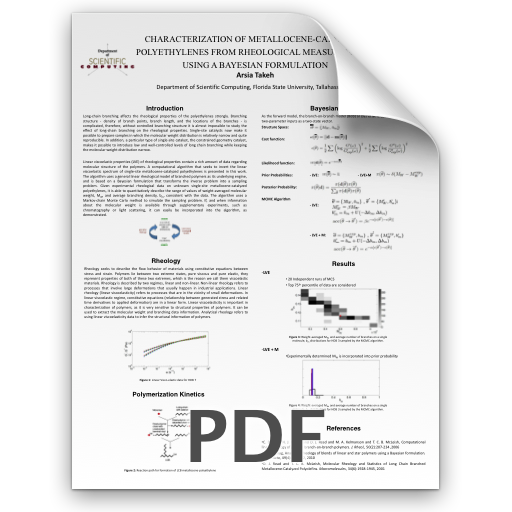
CHARACTERIZATION OF METALLOCENE-CATALYZED POLYETHYLENES FROM RHEOLOGICAL MEASUREMENTS USING A BAYESIAN FORMULATION
Introduction
Long-chain branching affects the rheological properties of the polyethylenes strongly. Branching structure - density of branch points, branch length, and the locations of the branches - is complicated, therefore, without controlled branching structure it is almost impossible to study the effect of long-chain branching on the rheological properties. Single-site catalysts now make it possible to prepare samples in which the molecular weight distribution is relatively narrow and quite reproducible. In addition, a particular type of single-site catalyst, the constrained geometry catalyst, makes it possible to introduce low and well-controlled levels of long chain branching while keeping the molecular weight distribution narrow.
Linear viscoelastic properties (LVE) of rheological properties contain a rich amount of data regarding molecular structure of the polymers. A computational algorithm that seeks to invert the linear viscoelastic spectrum of single-site metallocene-catalyzed polyethylenes is presented in this work. The algorithm uses a general linear rheological model of branched polymers as its underlying engine, and is based on a Bayesian formulation that transforms the inverse problem into a sampling problem. Given experimental rheological data on unknown single-site metallocene-catalyzed polyethylenes, it is able to quantitatively describe the range of values of weight-averaged molecular weight, MW, and average branching density, bm, consistent with the data. The algorithm uses a Markov-chain Monte Carlo method to simulate the sampling problem. If, and when information about the molecular weight is available through supplementary experiments, such as chromatography or light scattering, it can easily be incorporated into the algorithm, as demonstrated.


